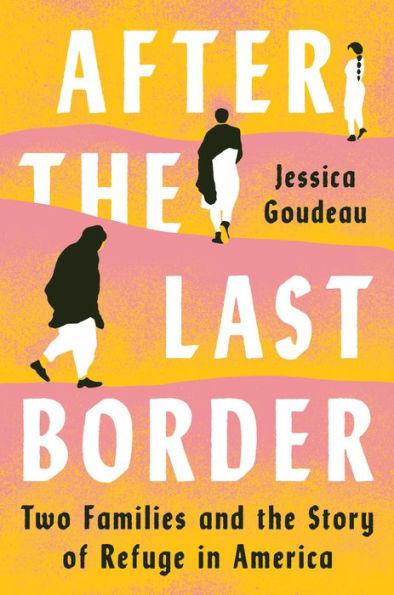
NONFICTION/IMMIGRATION
Jessica Goudeau
After the Last Border: Two Families and the Story of Refuge in America
Viking
Hardcover (also available as an e-book and audiobook), 978-0-525-55913-9, 368 pgs., $27
August 4, 2020
Imagine you are a refugee suddenly fleeing your house, your homeland, your people, and the only culture you’ve ever known. You can take almost nothing with you, and few relatives can accompany you. In what strange land will you finally settle? Will you find safety there? Will there be opportunities to rebuild your life and regather your family?
Jessica Goudeau’s compelling, eye-opening nonfiction work After the Last Border follows the lives of two women, one from Myanmar and the other from Syria, who escaped dangers that included civil war, racism, and religious and political persecution. After difficult journeys full of uncertainties and fears, they finally reached Austin, Texas, through America’s refugee resettlement program.
“Mu Naw arrived in 2007, at the beginning of the program for refugees from Myanmar, one of the most successful and widely supported resettlement initiatives in US history,” Goudeau writes. “Hasna al-Salam arrived in 2016, with the first wave of Syrian refugees, during the greatest moments of upheaval since the establishment of the federal resettlement program.”
Goudeau’s book details the separate worlds Mu Naw and Hasna were forced to leave, plus the cultural chasms they’ve had to cross in Texas. After the Last Border also focuses on “the story of the American resettlement program itself, from its roots in the immigration debates at the end of the nineteenth century to its dismantling in 2019 at the hands of the government branch that once promoted and protected it.”
The author spent two years researching and composing her book. She makes effective use of third-person narrative writing and interwoven chapters as she portrays the good and bad times the two women left behind. We see their struggles to adapt here, including learning English, figuring out regional attire, and accidentally discovering the viciousness of fire-ant bites.
Being a refugee in America today sometimes comes with social and political stigmas stirred up by a cold, unfriendly federal administration. Refugee status also generates safety concerns for relatives who are still living in their troubled homelands. These matters remain important concerns for Hasna, four years after reaching Austin, and for Mu Naw, thirteen years after her arrival.
“Not one single person I interviewed for the narrative portions of the book,” Goudeau states, “wanted to use their real name—not the former refugees or the resettlement caseworkers or the Syrian American community leaders who serve as cultural liaisons. With my editor’s oversight, Mu Naw and Hasna worked closely with me to change some physical attributes or other characteristics of the people who are involved in this story, so that this book does not put anyone at risk. Safety has been our highest narrative consideration.”
Jessica Goudeau’s After the Last Border deftly makes the case that America’s now politically threatened refugee-resettlement program is a humane and vital service. It should, she contends, once again become central to “every presidential administration’s foreign-policy stance.”
Jessica Goudeau has written for The Atlantic, The Washington Post, Los Angeles Times, and Teen Vogue, among other publications, and is a former columnist for Catapult. She produced projects for Teen Vogue and the documentary, A Line Birds Cannot See. She has a PhD in literature from the University of Texas at Austin and served as a Mellon Writing Fellow and interim writing center director at Southwestern University. Goudeau has spent more than a decade working with refugees in Austin, and is the co-founder of the nonprofit Hill Tribers, a nonprofit that provided supplemental income for Burmese refugee artists for seven years.
